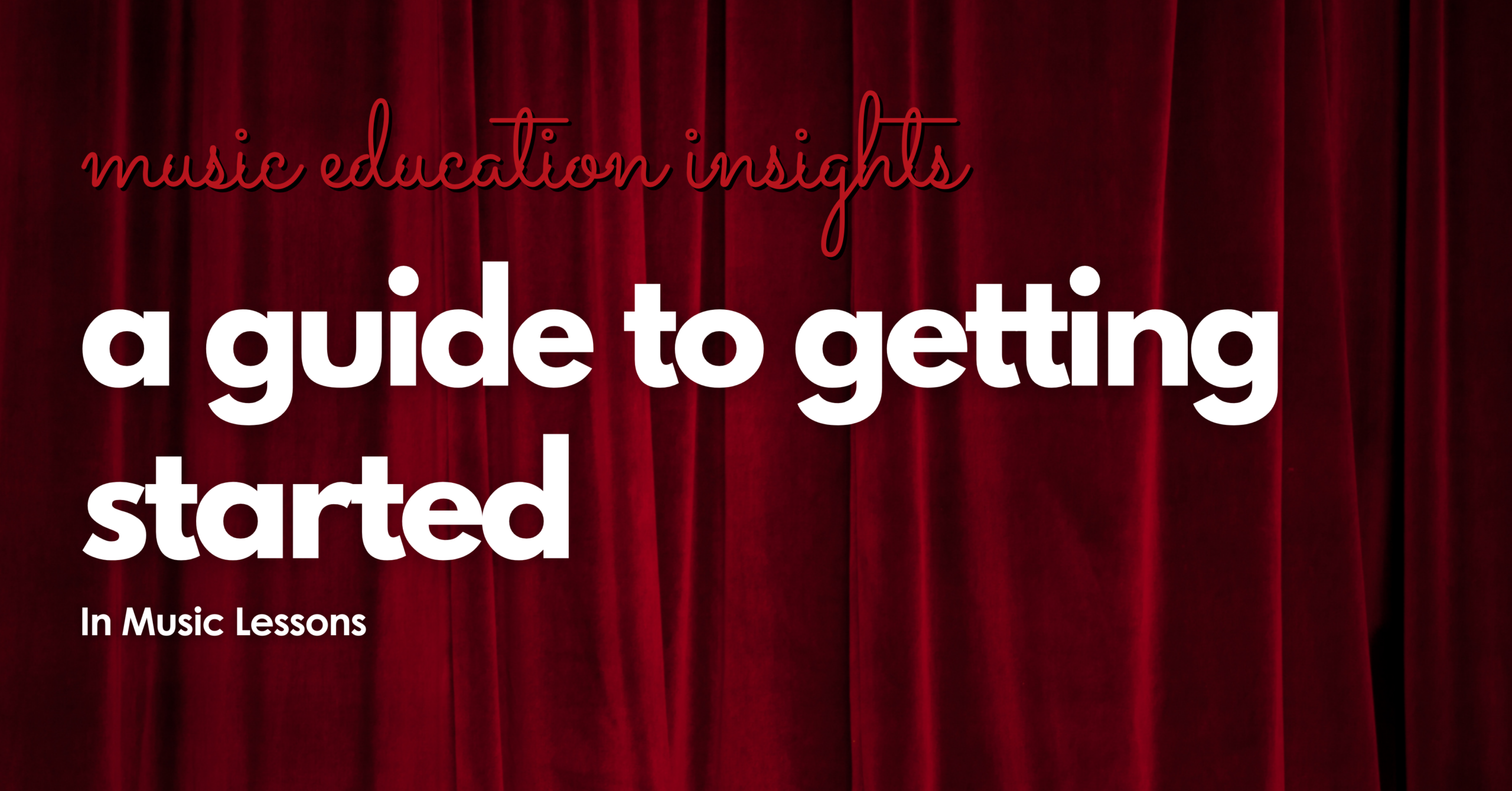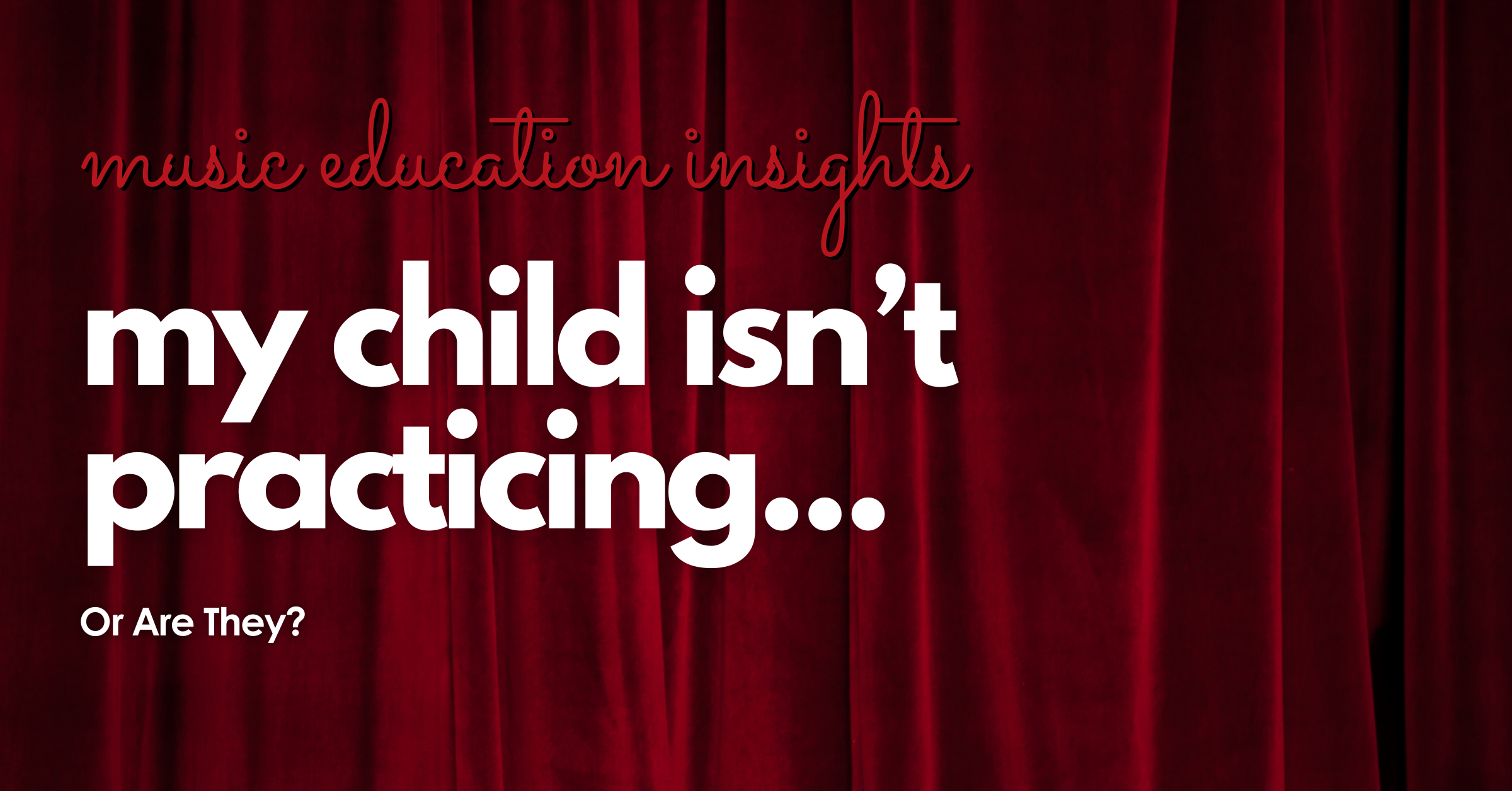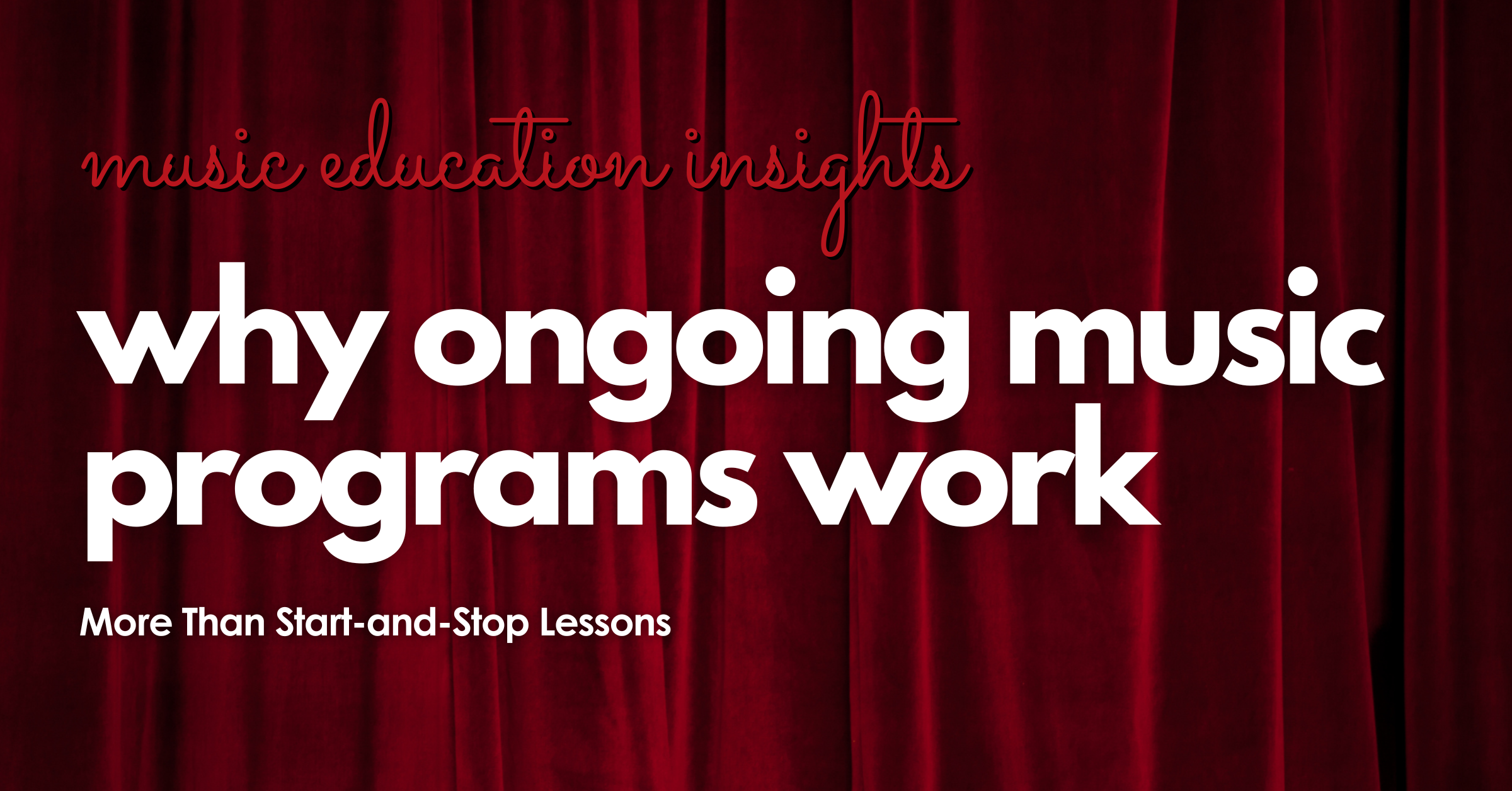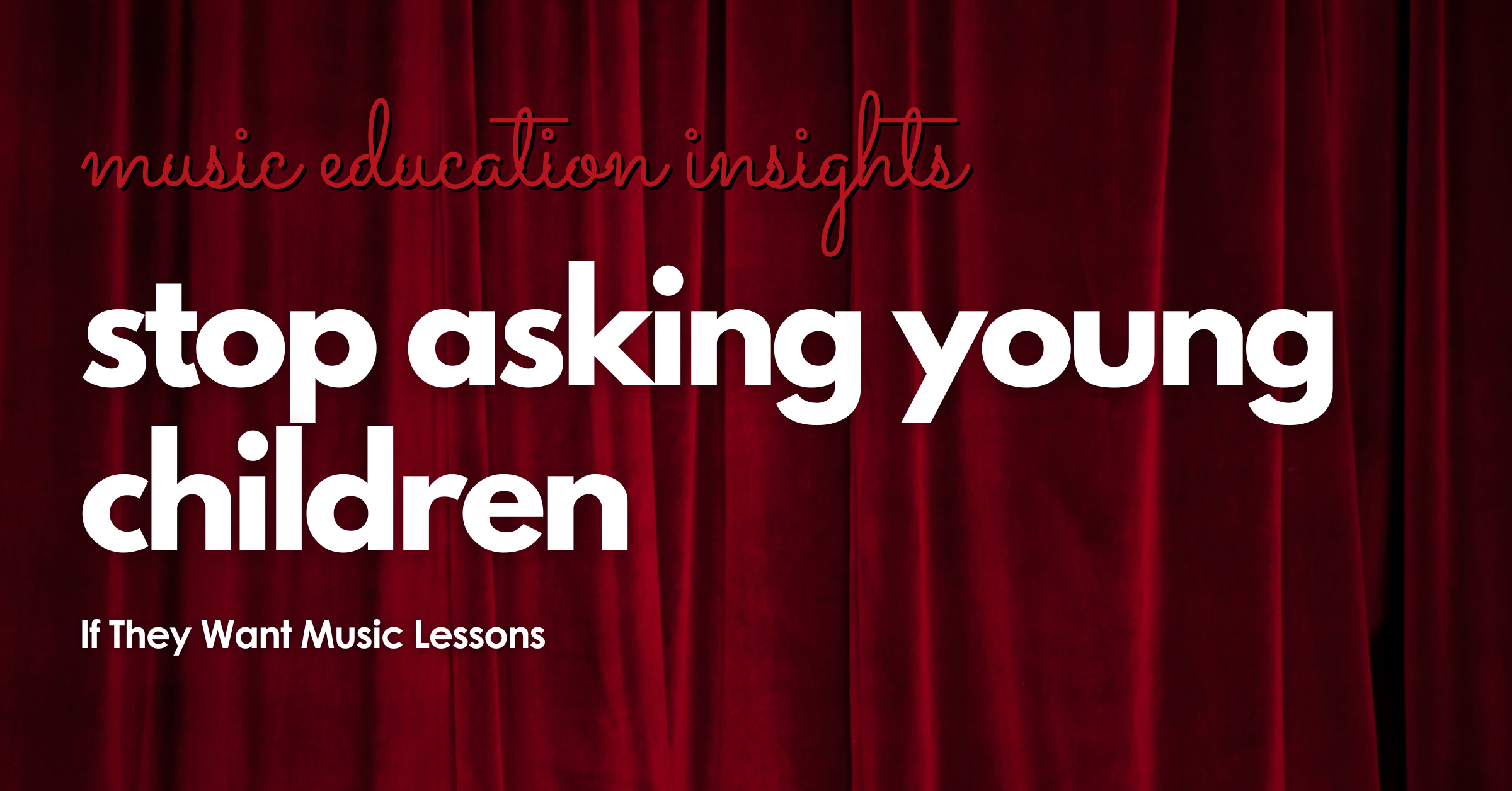Many parents are new to music lessons and unsure where to start. They wonder about costs, instruments, and what to expect. This guide helps answer those questions and gives you the information you need to choose the best music program for your child.
7 key factors to consider when choosing the right music program
1. Who are the lessons for?
Consider the student’s age, experience, and physical ability. A five-year-old beginner has different needs than a high school pianist or an adult returning to music after years away.
Key Considerations:
- Age and readiness level
- Instrument choice based on physical ability
- Any prior musical experience
2. What do you want to learn?
Everyone starts music for different reasons. Some want to learn a specific song or instrument, while others have long-term aspirations to become a well-rounded musician.
Consider these questions:
- Do you want to play a specific song or style of music?
- Are you looking for a casual experience or serious study?
- Do you want to perform in groups, or play just for fun?
- Are you interested in learning how to compose or produce music?
Choosing an Instrument
Some students pick an instrument because they already have one at home, while others feel drawn to a particular sound or style. It’s important to find an instrument that suits the student’s personality, interest, and physical abilities.
3. Why do you want to learn music?
Think about what drove you to explore music lessons. Does your child love to sing and dance around the house? Are you looking for an activity in the arts to give your child a more balanced education? Music education offers lifelong benefits beyond just playing an instrument. It enhances creativity, critical thinking, and confidence while improving memory, literacy, and cognitive skills.
Want to read more?
4. How do you want to learn?
Different students learn in different ways. Some thrive in one-on-one private lessons, while others enjoy group settings. Consider learning styles and environments when choosing a program.
- Online Learning
- Private Lessons
- Group Classes
5. When should you start?
Parents often ask when the best time is to start music lessons. If music is a priority, making time for it now ensures your child reaps the benefits sooner. If your child is asking for lessons or are showing signs of interest, they are probably ready. Finding an age-appropriate music program, including the instrument, is key to their continued participation and growth.
6. Where should you go and who should you learn from?
There are many ways to learn music, and choosing the right teacher and environment can make all the difference.
Finding the Right Teacher
Your teacher will shape your learning experience, so it’s essential to find a good fit.
Qualities of a Great Teacher:
- Clear communicator – Explains concepts in an understandable way.
- Encouraging & challenging – Balances support with appropriate difficulty.
- Engaged mentor – Walks the journey with the student, not just instructs from the sidelines.
Tip: It’s okay to switch teachers as you grow! Many students work with multiple teachers over time to gain new perspectives.
Types of Music Teachers:
- Novice Teachers ($) – High school or beginner instructors; great for casual learners.
- Apprentices / Teaching Assistants ($$) – College students or recent grads training under experienced teachers.
- Professional Musicians Who Teach ($$-$$$) – Focused on performance and real-world experience.
- Experienced Private Teachers ($$$) – Highly trained educators with structured learning plans.
- Certified Music Educators & Teaching Artists ($$$$) – Top-level instructors with advanced credentials, certifications, and professional training.
Want to read more?
Where Can You Learn Music?
Online (Self-Guided & Virtual Lessons)
- YouTube & Apps – Great for casual learning, but lacks personal feedback and next steps for improvement.
- Virtual Lessons – Convenient option for those outside a teacher’s local area. Has latency and clarity limitations.
In-Person Learning
- Private Lessons (Studio or Home-Based) – Personalized attention, structured learning.
- Semi-Private Lessons – More affordable, but requires students to learn the same instrument and stay on the same level. Eventually, they will need separate lessons.
- Group Classes (Community Music Schools, Local Programs) – Social and engaging, great for younger learners and beginning levels.
- School Music Programs – Choir, bands, orchestras, music ensembles, and general music classes are available in some schools. Large groups, not much individual attention.
Community-Based Learning
- Community Music Schools – A variety of structured programs, private lessons, ensembles, bands, exam and honors programs, collaborations, recitals, access to many experienced teachers with diverse backgrounds.
- Community Choirs & Bands – Great for students who already play and want performance experience.
- Online Music Communities – Connect with musicians globally for collaboration, music sharing, and networking.
Choose a teacher and environment that fits your learning style, goals, and schedule. If you or your child aren’t enjoying lessons, the solution isn’t to quit. Just find a better fit!
The right teacher can keep you inspired, challenged, and growing as you progress through your studies.
7. What are the costs?
Understanding the financial investment in music lessons is important. Costs vary based on the teacher’s experience, location, lesson type, the instrument, and materials needed.
Typical expenses include:
- Lesson tuition
- Sheet music & materials
- Instrument purchase or rental and maintenance
- Performance & event fees
Conclusion
Music lessons are about more than just learning notes—they shape brain development, leadership skills, and character at every stage of life. Actively making music strengthens focus, work ethic, teamwork, problem-solving, and creativity, while also serving as a powerful emotional outlet for stress relief and self-expression.
Music is a universal language that connects us all. The more we experience, create, and share it, the more enriched our lives, and the world, become.
Ready to get started?
Schedule a free school tour to experience our program firsthand. See our classrooms, meet our friendly staff, and let your child explore!
Which is right for you?
Find out what kind of musician you are, and the type of program that might be right for you. Take our Get Started in Music Quiz!




